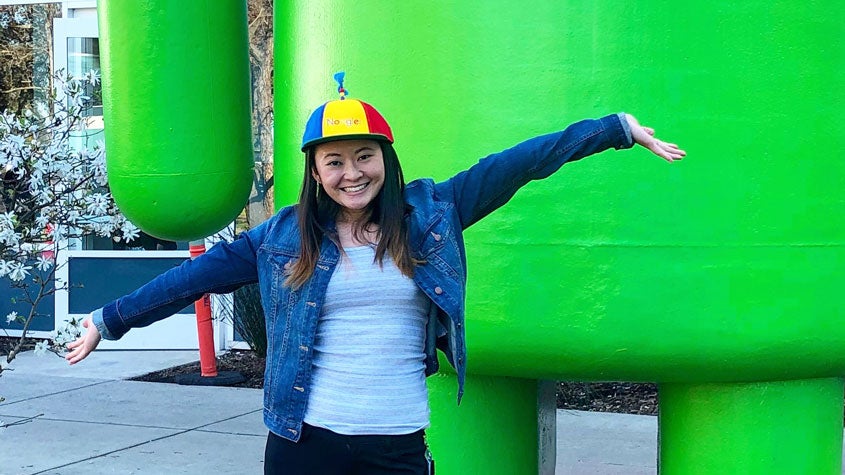Among the 102,000 full-time workers employed by Google is Jessica Gan, a data scientist with two degrees from Rice University who fine tunes the “blue dot” that shows your location and direction of travel on Google Maps.
“We have teams of people around the world collecting data to improve the accuracy and detail of the maps," Gan said about Google. "We use Wi-Fi or Bluetooth along with GPS. I provide analytics support.”
Gan received her B.A. in statistics (STAT) and psychology from Rice University in 2014. She then stayed at Rice to earn her professional master’s degree in STAT. She then went to work for Accenture, a business management consulting firm in Houston.
“Getting my master’s degree improved my credibility in the industry," she said. "It gave me a leg up."
Gan was born in China where her father was a geologist and her mother a pharmacist. The family emigrated to the United States in 1996 when Gan was three years old. Today, her father works as a software engineer and her mother is a data-base engineer.
“From the time I was very young I grew up with the idea that I would go into a STEM field," she said. "Math was always my strongest subject, but I was also interested in psychology. I decided I wanted to become a doctor."
By the second semester of her first year at Rice, Gan had changed her mind. She took STAT 310, “Introduction to Probability and Mathematical Statistics,” taught by Hadley Wickham, an assistant professor of STAT at Rice from 2008 to 2012. Wickham, now an adjunct professor in the department, created such R packages as ggplot2, and now is the chief scientist at RStudio, the company that makes software for R, a programming language and free software environment used in statistical computing and graphics.
“My timing was very good. Data science was getting a lot of attention around that time. Then I met Genevera Allen,” she said, referring to the associate professor who sponsored her senior project.
Gan was part of Allen’s team working to predict the likelihood of patients developing Alzheimer’s disease. They examined large pools of data, including DNA and medical histories. The resulting paper, “Crowdsourced estimation of cognitive decline and resilience in Alzheimer’s disease,” was published in 2016 in the journal Alzheimer’s and Dementia. She continued working on the Alzheimer’s project while working for her master’s degree.
After two and a half years on the data and analytics team at Accenture, Gan went to work for Google in Mountain View, Calif., in February 2018.
“There’s kind of a different vibe here," she said. "In Houston, it’s oil and gas. Here it’s technology. Rice prepared me for the transition."

